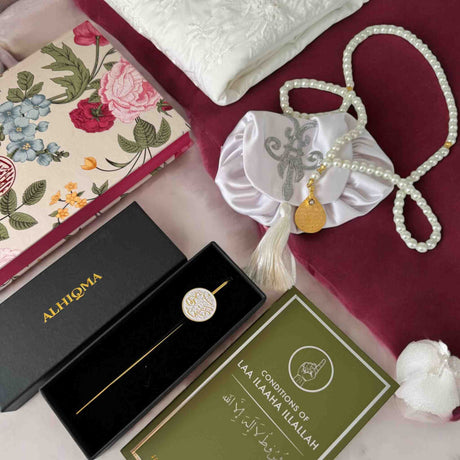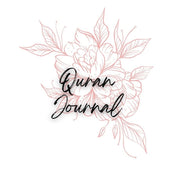The Meaning of Dua: Your Complete Guide to Seeking Allah's Forgiveness
Key Takeaways
- Dua is a powerful act of returning to Allah for help and forgiveness, rooted in humility and sincerity, not reserved only for those certain of their mistakes.
- Seeking forgiveness is an ongoing practice, not a one-time act, with the Prophet Muhammad (SAW) himself seeking forgiveness over seventy times a day.
- The urgency of repentance is emphasized, reminding us that delay in asking for forgiveness risks missing the opportunity entirely.
The True Meaning of Dua
Dua represents one of the most intimate forms of communication between a believer and Allah. At its core, dua is a form of prayer used to invoke, supplicate, request, or even humbly beg Allah for help, guidance, or assistance. But it's much more than just asking for things – dua is an acknowledgment of our complete dependence on our Creator.
When we engage in dua, we're not just reciting words. We're opening our hearts, admitting our vulnerabilities, and placing our trust entirely in Allah's wisdom and mercy. This act of
The Meaning of Dua: Your Complete Guide to Seeking Allah's Forgiveness
Key Takeaways
- Dua is a powerful act of returning to Allah for help and forgiveness, rooted in humility and sincerity, not reserved only for those certain of their mistakes.
- Seeking forgiveness is an ongoing practice, not a one-time act, with the Prophet Muhammad (SAW) himself seeking forgiveness over seventy times a day.
- The urgency of repentance is emphasized, reminding us that delay in asking for forgiveness risks missing the opportunity entirely.
The True Meaning of Dua
Dua represents one of the most intimate forms of communication between a believer and Allah. At its core, dua is a form of prayer used to invoke, supplicate, request, or even humbly beg Allah for help, guidance, or assistance. But it's much more than just asking for things – dua is an acknowledgment of our complete dependence on our Creator.
When we engage in dua, we're not just reciting words. We're opening our hearts, admitting our vulnerabilities, and placing our trust entirely in Allah's wisdom and mercy. This act of submission forms the foundation of Islamic spirituality and serves as a constant reminder of our relationship with the Divine.
Why We All Need Forgiveness
We're human, which means we're inherently imperfect. Every single one of us has made mistakes, whether we recognize them or not. Sometimes these errors are obvious, other times they're subtle choices woven into our daily lives.
The beauty of Islamic teaching lies not in expecting perfection, but in providing clear pathways back to Allah when we inevitably fall short. Allah has given Muslims numerous powerful duas for forgiveness throughout the Quran and authentic Hadith literature.
This is where Istighfar comes into play. Istighfar means seeking Allah's forgiveness and involves genuinely turning back to Allah while acknowledging our shortcomings. The word comes from the Arabic root meaning "to cover," suggesting that Allah's forgiveness acts as a shield over our mistakes.
The Urgency of Seeking Forgiveness
You don't need to wait until you're absolutely certain you've done something wrong to seek forgiveness. In fact, waiting can be spiritually dangerous. None of us knows what tomorrow holds, and delaying repentance means risking the loss of an opportunity that might never come again.
The Prophet Muhammad (SAW) himself sought Allah's forgiveness seventy to one hundred times every single day, according to authentic hadith recorded in Sahih Bukhari. If the most perfect human being felt the need to seek forgiveness multiple times daily, where does that leave the rest of us?
This practice demonstrates the profound humility and continuous awareness of Allah that should characterize a believer's life. Regular istighfar keeps our hearts soft, our consciousness of Allah sharp, and our spiritual state healthy.
Five Essential Duas for Daily Forgiveness
Building a regular practice of seeking forgiveness doesn't have to be complicated. Here are five authentic and powerful duas that you can incorporate into your daily routine:
1. The Simple Yet Profound
أَسْتَغْفِرُ اللهَ
"Astaghfirullah"
Translation: "I seek forgiveness from Allah."
This is perhaps the most accessible form of istighfar. Its simplicity makes it perfect for frequent repetition throughout the day.
2. The Comprehensive Seeking
أَسْتَغْفِرُ اللهَ الَّذِي لَا إِلَٰهَ إِلَّا هُوَ الْحَيُّ الْقَيُّومُ وَأَتُوبُ إِلَيْهِ
" Astaghfirullaha-lladhi la ilaha illa Huwa-l-Hayyu-l-Qayyumu wa atubu ilaih"
Translation: "I seek forgiveness from Allah, besides whom there is no god, the Living, the Sustainer, and I turn to Him in repentance."
3. The Master's Forgiveness (Sayyid al-Istighfar)
اللَّهُمَّ أَنْتَ رَبِّي لَا إِلَٰهَ إِلَّا أَنْتَ خَلَقْتَنِي وَأَنَا عَبْدُكَ
" Allahumma anta rabbi la ilaha illa anta, khalaqtani wa ana abduka..."
Translation: "O Allah, You are my Lord, there is no god but You. You created me and I am Your servant... forgive me, for none but You has the power to pardon."
The Prophet (SAW) said whoever recites this with firm belief will enter Paradise.
4. The Heart's Purification
رَبِّ اغْفِرْ لِي وَتُبْ عَلَيَّ إِنَّكَ أَنْتَ التَّوَّابُ الرَّحِيمُ
" Rabbi-ghfir li wa tub 'alayya innaka anta At-Tawwabu Ar-Raheem"
Translation: "My Lord, forgive me and turn to me in mercy. You are the Oft-Returning, the Most Merciful."
5. The Complete Supplication
اللَّهُمَّ اغْفِرْ لِي ذَنْبِي وَخَطَئِي وَجَهْلِي
"Allahumma-ghfir li dhanbi wa khata'i wa jahli"
Translation: "O Allah, forgive my sins, my mistakes, and my ignorance."
Making Forgiveness a Daily Practice
The key to benefiting from these duas lies in making them a consistent part of your routine. Start small – choose one or two that resonate with you and incorporate them into existing habits.
You might recite "Astaghfirullah" during your commute, use comprehensive duas during quiet moments, or make Sayyid al-Istighfar part of your bedtime routine. The goal isn't perfection but consistency and sincerity in turning toward Allah.
Seeking forgiveness isn't a sign of weakness. It's recognition of our humanity and celebration of Allah's infinite mercy. Every time you engage in istighfar, you connect directly to the Prophet Muhammad's (SAW) example and millions of believers throughout history.
The Transformative Power of Regular Repentance
When istighfar becomes regular practice, your awareness of Allah increases throughout the day. Small moments become opportunities for spiritual connection. Your heart becomes more sensitive to both your shortcomings and Allah's constant mercy.
This practice serves as a spiritual reset button. Had a difficult conversation? Seek forgiveness. Made a choice you're not proud of? Turn to Allah. Feeling distant from your faith? Let istighfar bridge that gap.
Allah's forgiveness isn't rationed or limited. No matter how many times you've made the same mistake or how far you feel you've strayed, the door to repentance remains open. Allah's mercy is greater than all our sins combined.
Frequently Asked Questions
Q: What is the meaning of Dua in Islam?
A: Dua means to call upon Allah sincerely for help, guidance, or forgiveness. It is a personal, spiritual act of connection and submission that reinforces the relationship between a Muslim and their Creator.
Q: Do I need to be sure I've sinned to ask for forgiveness?
A: No. Muslims are encouraged to seek forgiveness regularly, even when unsure of specific faults. This humble act of returning to Allah reflects awareness of our human limitations and His boundless mercy.
Q: How often should Muslims seek forgiveness through Dua?
A: Regularly and often. Prophet Muhammad (SAW) sought forgiveness 70-100 times daily. Frequent Istighfar is a way to keep the heart clean and connected to Allah.
Q: Is it too late to start repenting if I've neglected it for years?
A: Never. Islam teaches that Allah's mercy is greater than all sins. As long as one turns back with sincerity, the door to repentance remains open.
Q: Which dua for forgiveness is most powerful?
A: While all authentic duas are powerful, Sayyid al-Istighfar is called the "master of seeking forgiveness." However, the most powerful dua is the one recited with genuine sincerity and consistency.
This article was written by Sheela M. Ahmed, founder and owner of AlHiqma, blending traditional Islamic teachings with contemporary Muslim experiences. Since establishing AlHiqma in 2018, she has been dedicated to helping Muslim families strengthen their connection to faith through authentic Islamic lifestyle education grounded in values from the Quran and real-life applications.
We want to hear from you! How do you incorporate Istighfar in your daily life? What family traditions or moments of reflection help you return to Allah? Share your forgiveness stories with our AlHiqma community through our social media platforms. Your stories inspire and encourage fellow Muslims on their spiritual journeys—let's grow together in faith!
submission forms the foundation of Islamic spirituality and serves as a constant reminder of our relationship with the Divine.
Why We All Need Forgiveness
We're human, which means we're inherently imperfect. Every single one of us has made mistakes, whether we recognize them or not. Sometimes these errors are obvious, other times they're subtle choices woven into our daily lives.
The beauty of Islamic teaching lies not in expecting perfection, but in providing clear pathways back to Allah when we inevitably fall short. Allah has given Muslims numerous powerful duas for forgiveness throughout the Quran and authentic Hadith literature.
This is where Istighfar comes into play. Istighfar means seeking Allah's forgiveness and involves genuinely turning back to Allah while acknowledging our shortcomings. The word comes from the Arabic root meaning "to cover," suggesting that Allah's forgiveness acts as a shield over our mistakes.
The Urgency of Seeking Forgiveness
You don't need to wait until you're absolutely certain you've done something wrong to seek forgiveness. In fact, waiting can be spiritually dangerous. None of us knows what tomorrow holds, and delaying repentance means risking the loss of an opportunity that might never come again.
The Prophet Muhammad (SAW) himself sought Allah's forgiveness seventy to one hundred times every single day, according to authentic hadith recorded in Sahih Bukhari. If the most perfect human being felt the need to seek forgiveness multiple times daily, where does that leave the rest of us?
This practice demonstrates the profound humility and continuous awareness of Allah that should characterize a believer's life. Regular istighfar keeps our hearts soft, our consciousness of Allah sharp, and our spiritual state healthy.
Five Essential Duas for Daily Forgiveness
Building a regular practice of seeking forgiveness doesn't have to be complicated. Here are five authentic and powerful duas that you can incorporate into your daily routine:
1. The Simple Yet Profound
Arabic: أَسْتَغْفِرُ اللهَ
Transliteration: Astaghfirullah
Translation: "I seek forgiveness from Allah."
This is perhaps the most accessible form of istighfar. Its simplicity makes it perfect for frequent repetition throughout the day.
2. The Comprehensive Seeking
Arabic: أَسْتَغْفِرُ اللهَ الَّذِي لَا إِلَٰهَ إِلَّا هُوَ الْحَيُّ الْقَيُّومُ وَأَتُوبُ إِلَيْهِ
Transliteration: Astaghfirullaha-lladhi la ilaha illa Huwa-l-Hayyu-l-Qayyumu wa atubu ilaih
Translation: "I seek forgiveness from Allah, besides whom there is no god, the Living, the Sustainer, and I turn to Him in repentance."
3. The Master's Forgiveness (Sayyid al-Istighfar)
Arabic: اللَّهُمَّ أَنْتَ رَبِّي لَا إِلَٰهَ إِلَّا أَنْتَ خَلَقْتَنِي وَأَنَا عَبْدُكَ
Translation: "O Allah, You are my Lord, there is no god but You. You created me and I am Your servant... forgive me, for none but You has the power to pardon."
The Prophet (SAW) said whoever recites this with firm belief will enter Paradise.
4. The Heart's Purification
Arabic: رَبِّ اغْفِرْ لِي وَتُبْ عَلَيَّ إِنَّكَ أَنْتَ التَّوَّابُ الرَّحِيمُ
Transliteration: Rabbi-ghfir li wa tub 'alayya innaka anta At-Tawwabu Ar-Raheem
Translation: "My Lord, forgive me and turn to me in mercy. You are the Oft-Returning, the Most Merciful."
5. The Complete Supplication
Arabic: اللَّهُمَّ اغْفِرْ لِي ذَنْبِي وَخَطَئِي وَجَهْلِي
Transliteration: Allahumma-ghfir li dhanbi wa khata'i wa jahli
Translation: "O Allah, forgive my sins, my mistakes, and my ignorance."
Making Forgiveness a Daily Practice
The key to benefiting from these duas lies in making them a consistent part of your routine. Start small – choose one or two that resonate with you and incorporate them into existing habits.
You might recite "Astaghfirullah" during your commute, use comprehensive duas during quiet moments, or make Sayyid al-Istighfar part of your bedtime routine. The goal isn't perfection but consistency and sincerity in turning toward Allah.
Seeking forgiveness isn't a sign of weakness. It's recognition of our humanity and celebration of Allah's infinite mercy. Every time you engage in istighfar, you connect directly to the Prophet Muhammad's (SAW) example and millions of believers throughout history.
The Transformative Power of Regular Repentance
When istighfar becomes regular practice, your awareness of Allah increases throughout the day. Small moments become opportunities for spiritual connection. Your heart becomes more sensitive to both your shortcomings and Allah's constant mercy.
This practice serves as a spiritual reset button. Had a difficult conversation? Seek forgiveness. Made a choice you're not proud of? Turn to Allah. Feeling distant from your faith? Let istighfar bridge that gap.
Allah's forgiveness isn't rationed or limited. No matter how many times you've made the same mistake or how far you feel you've strayed, the door to repentance remains open. Allah's mercy is greater than all our sins combined.
Frequently Asked Questions
Q: What is the meaning of Dua in Islam?
A: Dua means to call upon Allah sincerely for help, guidance, or forgiveness. It is a personal, spiritual act of connection and submission that reinforces the relationship between a Muslim and their Creator.
Q: Do I need to be sure I've sinned to ask for forgiveness?
A: No. Muslims are encouraged to seek forgiveness regularly, even when unsure of specific faults. This humble act of returning to Allah reflects awareness of our human limitations and His boundless mercy.
Q: How often should Muslims seek forgiveness through Dua?
A: Regularly and often. Prophet Muhammad (SAW) sought forgiveness 70-100 times daily. Frequent Istighfar is a way to keep the heart clean and connected to Allah.
Q: Is it too late to start repenting if I've neglected it for years?
A: Never. Islam teaches that Allah's mercy is greater than all sins. As long as one turns back with sincerity, the door to repentance remains open.
Q: Which dua for forgiveness is most powerful?
A: While all authentic duas are powerful, Sayyid al-Istighfar is called the "master of seeking forgiveness." However, the most powerful dua is the one recited with genuine sincerity and consistency.
This article was written by Sheela M. Ahmed, founder and owner of AlHiqma, blending traditional Islamic teachings with contemporary Muslim experiences. Since establishing AlHiqma in 2018, she has been dedicated to helping Muslim families strengthen their connection to faith through authentic Islamic lifestyle education grounded in values from the Quran and real-life applications.
We want to hear from you! How do you incorporate Istighfar in your daily life? What family traditions or moments of reflection help you return to Allah? Share your forgiveness stories with our AlHiqma community through our social media platforms. Your stories inspire and encourage fellow Muslims on their spiritual journeys—let's grow together in faith!












